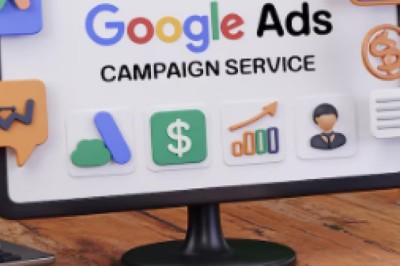views
Introduction
If you're running a small business, then you know it's much more than just having a great idea and putting up some marketing material. There are so many other aspects to consider when putting up your business, all of which can make or break the success of your venture. As a result, it's best to prepare for all the challenges before launching your new business. Here are seven things you should consider:
Location
Location is crucial. It can be the difference between success and failure. If you're considering starting a business, you need to consider where it will be based.
The location of your business will affect the type of customers who come in and buy things from you (or not). If they don't live nearby, they won't make regular visits; if they do live nearby but have no reason to visit often (or at all), then again--you may not see much traffic.
Similarly, if you open up a shop somewhere crowded with other businesses already up and running, then finding employees who want to work there might prove difficult as well.
Building/Infrastructure
Before you start your business, you need to make sure that the building is ready. You want to avoid discovering after opening day that the electrical system has been tampered with or there's a leak in your plumbing. The following are things you should check:
- The structure of the building itself - Is it safe? If you need more money to make repairs, do you have enough money to make repairs?
- The electrical system - Does it work properly? Are all outlets grounded correctly? Is there enough wattage capacity for all machines and equipment at once (if applicable)? Do any wires look frayed or damaged in any way? Are any exposed outlets or loose wiring hidden by furniture/decorations/etc.? Are there surge protectors installed on every computer tower/monitor screen, power strips for printers, etc.? These are necessary steps because if something goes wrong, everything else could go down too.
Employees and Staffing
When hiring employees, you must ensure they are the right fit for your business. Hiring someone who is not a good fit can negatively affect your company and make it difficult for you to grow in the future. Here are some questions you should ask yourself before making a hiring decision:
- Is this person trustworthy?
- Are they hard-working?
- Can they do the job well?
If you answer "no" or "I'm not sure" to any of these questions, then maybe it's time for a new employee.
Suppliers, Vendors, and Contractors
When starting your business, you must consider the people who will provide goods and services for you. Suppliers, vendors, and contractors are all vital to ensuring your business runs smoothly.
You'll want a list of suppliers so that when someone walks into the store and asks for something specific, you can tell them where they can find it on the shelf. It also allows them to see what else is available in case they don't like what they see in front of them (or if they're looking for something different).
Make sure that everyone knows what information needs sharing between parties before signing any contracts -- this includes details such as payment terms and deadlines as well as how often orders will come through, so both sides know how much stock needs to order at once time; otherwise there could be problems later down the road when one party thinks another has failed their end of an agreement but hasn't because there wasn't any official agreement made.
Technology and Equipment
Technology and equipment are the most critical aspects of running a business. The right tools can help you increase productivity, efficiency, and customer satisfaction. However, it is essential to avoid getting carried away with this aspect of your business because it can be very costly if you understand exactly what you need for your specific industry or type of work.
It would help if you thought about what technology/equipment will help your company best accomplish its goals while also being cost-effective in terms of budgeting and maintenance costs over time (and whether those costs are worth it).
Business Insurance
Business Insurance is a necessity for any business owner. It protects your business, employees, and property from unexpected events like fires or floods.
It's essential to have adequate coverage in place before you open the doors of your new business so that there is no financial loss involved if something goes wrong.
Financial Plan
The financial plan is a summary of your business model. It's a document that outlines how you plan on generating revenue and what expenses you'll have to incur. You can do a presentation about it and use free Powerpoint templates online.
The most important thing to remember when putting together your financial plan is that it should be as accurate as possible. If any assumptions or projections could change, make sure it's clearly stated so you can revisit them later if necessary.
It would help if you prepared for all the challenges before launching your new business.
Prepare for all the challenges before launching your new business. Make sure you have a solid plan in place and a backup plan if things don't go as planned. You should also have a financial plan to ensure that everything will be okay financially when it comes time for taxes or other expenses like advertising, marketing, and more.
Conclusion
If you're planning on starting your own business, it's essential to make sure that you have thought through all of the details. You want to ensure that your idea is feasible and that everything runs smoothly regarding finances and staffing requirements. The best way to do this is by creating a business plan before making any significant decisions or investments.






















Comments
0 comment